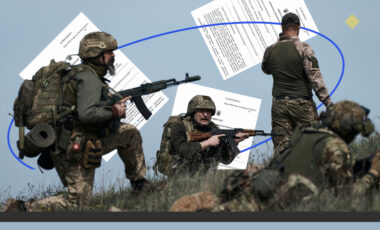"Schools without nicotine and tobacco": Ukraine became the third country in the world to implement a WHO pilot project

Photo: ukrinform
Ukraine has participated in the WHO pilot project, Schools Without Nicotine and Tobacco, which will result in the publication of a guide for educational institutions on implementing nicotine and tobacco-free learning space.
This was announced by the national coordinator of non-communicable diseases programs of the WHO Office in Ukraine Andrii Skipalskyi.
According to him, there is a worldwide trend of increasing the prevalence of tobacco products, e-cigarettes among children and youth. And one of the tools of the WHO campaign against tobacco distribution was a manual that will help teachers, parents, schools, local authorities to comply with the laws adopted in most countries.
"In Ukraine, smoking on the premises of educational institutions has been prohibited by law for more than 10 years. Instead, we observe that e-cigarettes have a place in schools, and children use these devices indoors and even during lessons. This is the case all over the world… This handbook is being piloted in Ukraine to gather experience on how realistic these recommendations are, how useful it will be for other countries to implement these policies. So Ukraine became the third country in the world to pilot this handbook, and based on the experience of these countries, it will be finalized and presented for global use," Skipalskyi said.
He noted that according to a global survey of young people on tobacco use, 18% of children in Ukraine aged 13 to 15 used e-cigarettes. Experts hope that working with schools will increase adolescents' awareness of the risks and harms of e-cigarettes and tobacco heating devices.
The project took place from September to December 2021 in 4 educational institutions: two schools in Kyiv and two schools in the Rivne region. Project coordinator Oksana Levytska noted that each school had adopted a document "School Policy without Nicotine and Tobacco," which will be implemented on an ongoing basis. An information campaign was conducted, and educational institutions posted information on banning the use of nicotine and tobacco products, as well as content about their risks and harm to health.
At the beginning and end of the project, two surveys were conducted with more than 400 people, 95% of whom were schoolchildren.
In particular, the share of those who received new information on the risks of use and ways to quit nicotine and tobacco products increased from 68% in the first phase of the survey to 81% in the second.
In addition, support for strengthening control over the ban on smoking in educational institutions and on their campuses increased from 58% in the first stage to 63% in the second stage.
At the same time, according to the project coordinator, it is a matter of concern that children consider e-cigarettes and heated tobacco products to be less harmful to health than regular cigarettes.
"One participant in four in the survey has tried nicotine and tobacco products, and e-cigarettes have the largest share. Even after the information campaign, schoolchildren tend to consider e-cigarettes and tobacco products for electric heating less harmful," said Levytska.
The project experience is planned to be shared with all Ukrainian schools.




















































